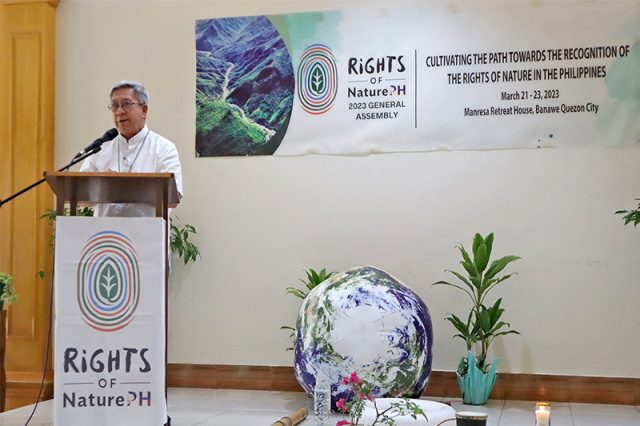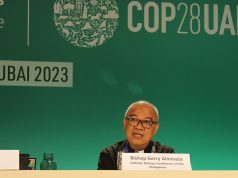
The Catholic Church’s social action centers have banded together to again push for a legislative measure that gives trees, rivers and ecosystems the legal right to exist and thrive.
Caritas Philippines and more than 60 diocesan social action centers issued a statement Thursday, following a three-day general assembly on the “Rights of Nature” bill in Quezon City.
Joining around 70 countries, the United Nations, environmental defenders, and faith organizations across the world in declaring a “climate emergency”, they appealed to Congress “to pass the Rights of Nature bill now!”
“We commit to collectively defend the rights of nature by pushing for the RoN and alternative minerals management legislations,” the statement read.
“We make this declaration and commitment, as we demand our government to do the same,” the national Caritas network said.
Rights of Nature is a growing movement in the country spearheaded by the Philippine Misereor Partnership, Inc. and Caritas Philippines.
The rights of nature legislation was first introduced to the Philippine Congress in 2019.
In July 2022, Sen. Risa Hontiveros reintroduced the measure by filing Senate Bill No. 143 or the “Rights of Nature Act of 2022”.
RoN bills were also filed at the Lower House last February by Oriental Mindoro 1st District Rep. Arnan Panaligan, Albay 2nd District Rep. Joey Salceda and Bohol 1st District Rep. Edgar Chatto.
In 2022, Quezon province’s Infanta local government made a historical mark by filing the country’s first rights of nature ordinance, which establishes the Agos River as a protected area.
Since the launching of the rights of nature movement in the country in 2018, PMPI said the RoN “is spreading and gaining traction as it continues to win over the upper and lower chamber of Congress”.
“It now moves towards engaging more local government units, agencies, lawmakers, academe, and civil society organizations in the advocacy to change the very anthropocentric and utilitarian relationship of humans with nature,” the PMPI added.









